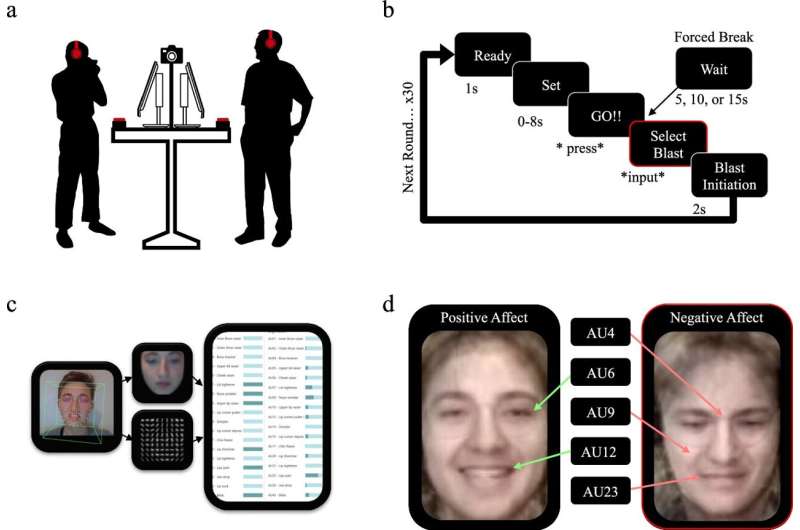Study suggests five-second break can diffuse an argument between coupled partners

A trio of psychologists at The University of St Andrews, in Scotland, has found that taking a five-second break before things escalate can reduce the chances of a full-blown argument occurring. For their paper, published in the journal Communications Psychology, Annah McCurry, Robert May and David Donaldson, conducted emotional experiments with volunteer couples.
Prior research has suggested that if couples in intimate relationships take a time-out when feeling frustration or anger building toward their partner, they may be able to diffuse the situation. The research team wanted to know how much of a break is needed to achieve such a result, so they designed and carried out emotional and stress experiments with 81 volunteer couples in their lab.
The experiments consisted of asking the couples to play an interactive game with one another that was designed to lead to conflict. Part of the game involved allowing one participant to blast a loud, unpleasant noise at their partner. Each of the couples was asked to play thirty rounds of the game, and they were interrupted and forced to take a time out at different times and for different durations. Each of the couples was also filmed with a 360-degree camera fitted with a microphone while they played.
The researchers used what they describe as advanced machine learning software to help them analyze the results of the gameplay between the couples. Voice levels and facial expressions were used to determine frustration and anger levels.
The analysis showed that forcing a couple to take a time-out as short as five seconds during the moments when frustration was building but before an outburst occurred, was as effective as a 10 to 15 second time out—a finding the team suggests, indicates that the break itself serves to diffuse the situation, thus its duration was not nearly as important as the fact that it took place.
The research team concludes by suggesting that their findings indicate that couples have a simple and easy-to-use tool at their disposal, one that does not require anything but the desire and will to use it when a potential argument begins to arise.
More information: Annah G. McCurry et al, Both partners' negative emotion drives aggression during couples' conflict, Communications Psychology (2024). DOI: 10.1038/s44271-024-00122-4
Journal information: Communications Psychology
© 2024 Science X Network
No comments:
Post a Comment